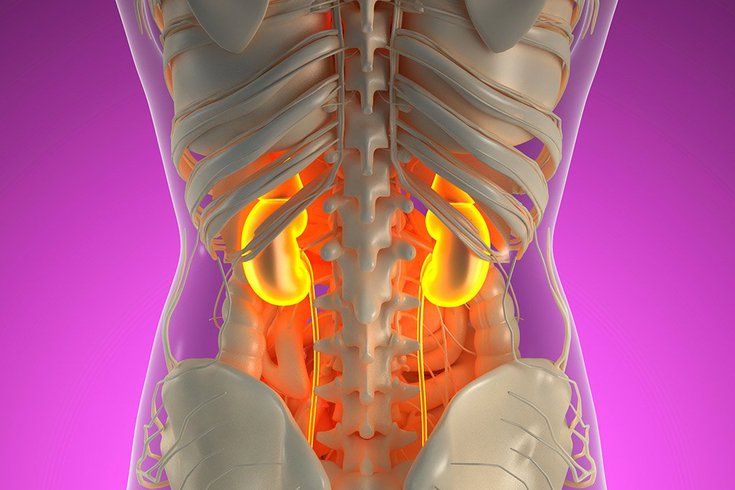
September 15, 2020
 Source/Image licensed from Ingram Image
Source/Image licensed from Ingram Image
Health experts fear a surge in patients needing dialysis and kidney transplants, a ripple effect of the COVID-19 pandemic. .
The COVID-19 pandemic is causing an unprecedented number of acute kidney injuries, creating an overwhelming need for dialysis, health experts say.
"We are grappling with a great deal of uncertainty as to how the virus will impact the kidneys in the long haul," said Dr. Girish Nadkarni, a nephrology specialist at Mount Sinai Hospital in New York City. "We may be facing an epidemic of post-COVID-19 kidney disease and that, in turn, could mean much greater numbers of patients who require kidney dialysis and even transplants."
In New York City, which had been a COVID-19 epicenter, hospitals have experienced widespread shortages of dialysis nurses, machines, replacement fluids and other resources.
Health experts stress the importance of identifying patients as early as possible to slow the progression of kidney disease.
Acute kidney injury occurs when the kidneys stop working abruptly, typically over just a couple days. If treated immediately, kidney function can return to normal, or at least close to normal. But some people end up with chronic kidney disease, permanent damage that can lead to kidney failure.
Acute kidney injury is most common in patients already hospitalized, particularly among those in intensive care. Signs include not producing enough urine, fatigue, breathing difficulties, confusion, nausea, pain or pressure in the chest and swelling in the legs, ankles or feet.
Exactly how the coronavirus causes acute kidney injury is not completely understood, but some studies have suggested the virus attacks the kidneys directly, injuring the renal tubules. These tubes are responsible for filtering and cleaning the blood to make urine. Lack of oxygen due to COVID-19 related pneumonia and extreme inflammation are other possible explanations.
COVID-19 patients who develop acute kidney injury are far more likely to die, according to research conducted by Nadkarni. The study was published earlier this month in the Journal of the American Society of Nephrology.
Of 4,000 adults hospitalized with COVID-19 in the Mount Sinai Health System, 46% experienced acute kidney injuries. One-fifth of those patients required dialysis. Only 30% survived and recovered kidney function by the time they were discharged from the hospital.
The in-hospital death rate of patients with acute kidney injury was 50%. Only 8% of patients without AKI died.
COVID-19 patients who developed acute kidney injury were more likely to have other health issues like hypertension, congestive heart failure, diabetes and chronic kidney disease. But kidney damage also occurred in otherwise healthy people hospitalized with the coronavirus.
Patients who suffer from acute kidney injury should be monitored closely for chronic kidney disease even after they have recovered from COVID-19, nephrologists say.
"In light of the data we have collected about acute kidney injury and other kidney abnormalities associated with COVID-19, our first priority must be to identify patients early and disrupt the progression of kidney disease," said senior author Benjamin Glicksberg, an assistant professor of genetics and genomic sciences.